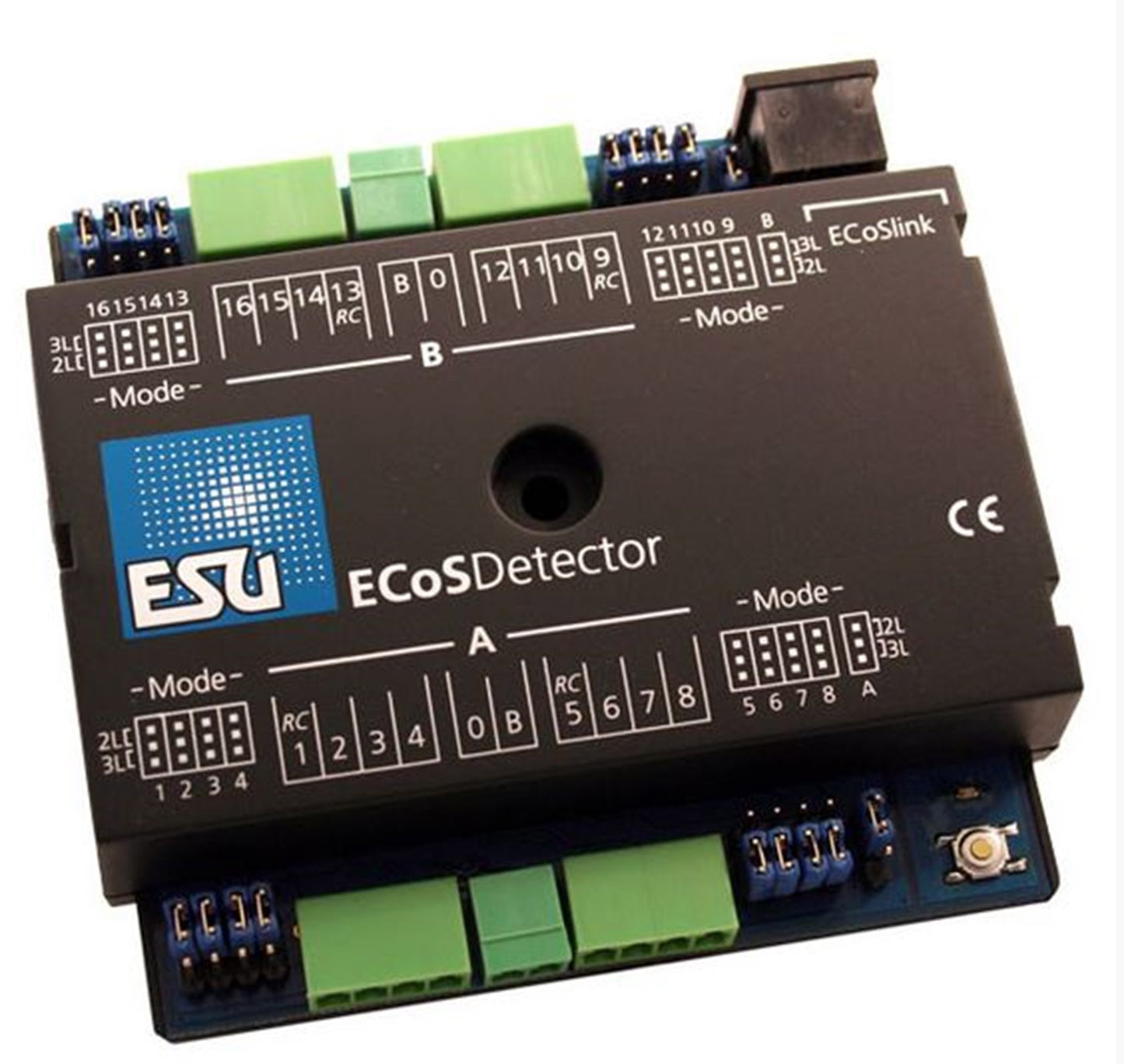ESU Loksound 50094 ECosDetector Feedback Module - 16 Inputs

Product Details
| SKU | ESU-50094 |
|---|---|
| Vendor | ESU Loksound |
| Categories | Best selling products Control & Digital Controllers and Transformers ESU Loksound In stock Items Latest Releases New products |
| Share | |
| Features |
Product Description
Our ECoSDetector feedback modules should be used to automate train operations. Beside the usual track occupancy detection, the train specific identification number can be read. It also enables the implementation of an external track control board.
On larger layouts, the operator would want to determine the actual position of locos and trains. With the knowledge of which track section is currently occupied or of which track is still free in the hidden yard, an automated operation is made possible.
The ECoSDetector is compatible with all ECoS command stations or Central Stations (providing the Central Station has been updated with the Central Station upgrade software) and is able to detect up to 16 track sections. Two-rail or three-rail tracks can be directly connected to the module. Beside the 16 track occupancy detectors or feedback sections, each ECoSDetector can also detect a locomotive ID on up to four track sections, providing that RailCom decoders are used. If desired, the ECoSDetector functionality can be extended with the ECoSDetector Extension module. When docked to the side of the ECoSDetector, if offers up to 32 outputs, each displaying the status of the track sections with a control light or driving a suitable block signal.
Detection and feedback
The ECoSDetector is able to monitor up to 16 track sections and reports the presence of a loco (track occupancy). Each of the 16 inputs has a maximum current capability of 3A. The ECoSDetector module also has two separate power inputs, and can be supplied from two separate Booster units.
Opto-couplers are used to provide a reliable detection. Two or three rail operation is easily selected through jumpers.
Input devices
Up to 16 regular switching devices can also be used as inputs. Reed switches, detection track sections, push buttons or toggle switches can all be connected to the inputs. The information is then processed in the command station.
Train ID detection
Beside conventional track occupancy detection, each ECoSDetector has the additional ability to monitor four of the 16 track sections for train identification: Via the RailCom technique (so-called 'local detectors') you will not only easily find out that there's currently a loco on this track section, but also identify which specific loco it is (train ID detection). However, this only works with RailCom-compatible loco decoders.
Smart
With the knowledge of the train specific position, new functions can be implemented, using the route control module of the ECoS command station. For example, you can automatically activate the horn of a loco when it is about to pass a railway crossing or determine which loco is parked in the hidden yard.
It is also possible to de-bounce switch inputs or track occupancy detectors electronically to ensure a reliable feedback in case of unreliable contact or very dirty tracks.
ECoSlink connection
Every ECoSDetector can be directly connected to the command station via the ECoSlink bus. Beside all ECoS command stations you can also use the Central Station (updated with the Central Station with software upgrade by ESU) The galvanic isolation of the bus systems and the command station guarantees the best-possible reliable operation and a reliable data transmission to the command station.
All ECoSDetector modules will be detected automatically by the command station and the information integrated in the operation control routine. The configuration of the devices can be also carried out directly with the command station after installation.
Upgradeable
When needed, the ECoSDetector software can be upgraded to add new functionalities. The command station will perform the required updates completely automatically. This will guarantee at all times that the ECoSDetector remains at the most current technical status.
